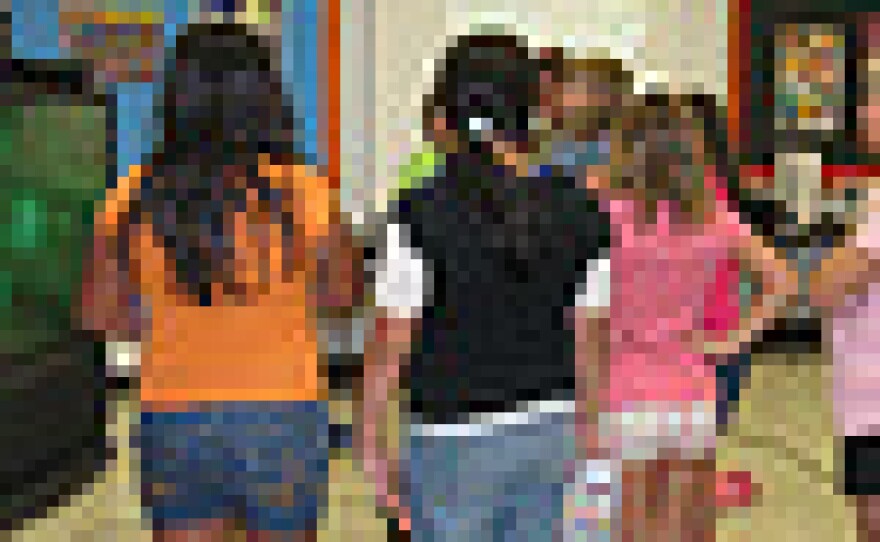The pilot project is a joint effort between pharmacy residents at the University of San Diego Medical Center and the San Diego Unified School District.
Drugs like Ritalin, prescription pain-killers and over-the-counter sedatives will be the focus of interactive classroom discussions that start on Thursday.
More than 400 seventh and eighth grade students at Memorial Preparatory for Scholars and Athletes middle school got parental consent to participate.
Emilie Smith is a pharmacy resident at UCSD Medical Center. She helped develop the program for kids as young as 11.
“We’re seeing that they’re starting at this age. They’re at high risk. I believe the latest national statistics says that one-in-five teens are using prescription medication for non-medical purposes.”
Smith said easy access to “medicine cabinet” drugs are a major factor in drug abuse among young teens.
But will so-called “tweens” talk about drug misuse at school? Memorial Prep’s principle Georgina Barajas-Aguirre believes they will. She said the program’s format was designed to foster an open dialogue.
“The reason that we’re doing the format in the classroom instead of an assembly is we don’t want to lose the opportunity for that face-to-face conversation, and open it up for them to ask questions and share.”
Following the classroom sessions, parents and students will be asked to evaluate the program.
If it’s successful, UCSD Medical Center and the San Diego Unified School District plan on expanding the program to other schools over the next few years.







